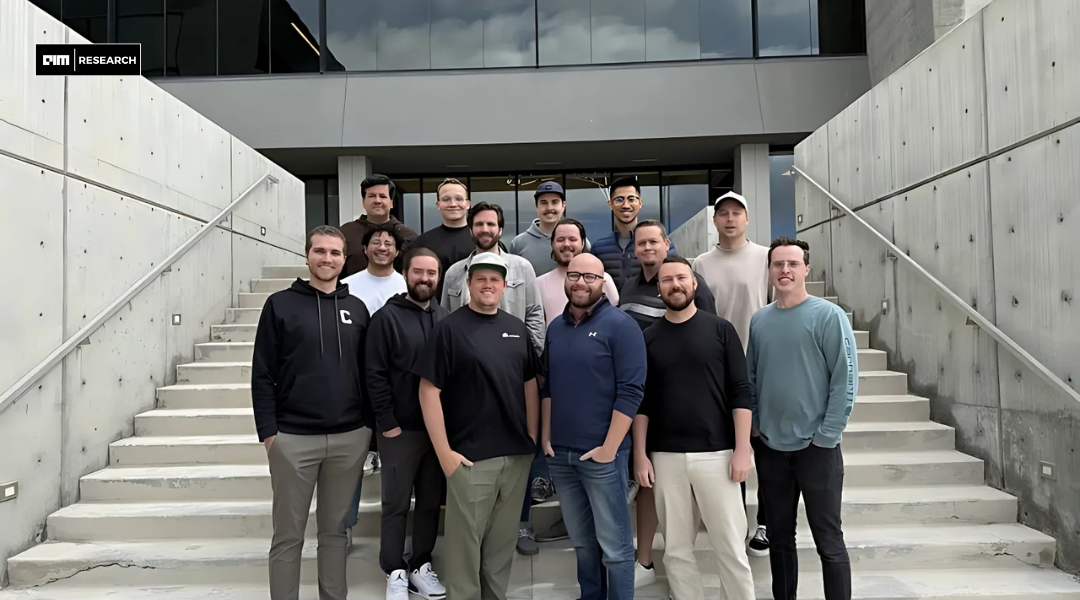It is often said that artificial intelligence threatens to automate away human connections, but one startup is swimming against the tide. AskElephant, Inc., the AI orchestration platform built specifically for customer-facing teams, has just secured $6 million in seed funding to pursue what might seem like a paradox: using AI to make revenue teams more human.
The funding round, led by Jump Capital with participation from High Alpha, Tamden, and Saas, along with existing investors, arrives at a moment when companies are grappling with a fundamental tension.
They ask one question: How do you leverage the efficiency of AI without losing the authentic relationships that drive revenue?
The Empathy Gap in AI
Founded in 2023, AskElephant emerged from a simple yet profound observation that founder and CEO and founder Woody Klemetson articulates clearly: “There’s no shortage of AI tools, but very few are built with empathy for how revenue teams actually work.”
This insight cuts to the heart of why so many AI implementations feel disconnected from real-world workflows.
While the market floods with AI solutions promising to transform sales and marketing, AskElephant took a different approach. Instead of building another tool that demands teams adapt their processes, the company designed its platform to understand and enhance how revenue professionals naturally operate.
The result is what they call a proactive “second brain” that works across multiple applications, providing insights on deal intervention, product feedback, and training opportunities while handling routine tasks like pre-meeting preparation and CRM note-taking.
Beyond the Hype
The company’s growth metrics tell a compelling story that goes beyond typical startup hyperbole. With a 100% quarter-over-quarter growth rate and a customer base that includes companies like Redo, Disruptive Advertising, and ELB Learning, AskElephant appears to have struck a nerve in the market. This traction suggests that their thesis about human-centered AI resonates with actual revenue teams struggling to balance efficiency with authenticity.
“As companies struggle to maintain human connection in an increasingly automated world, the demand for AI solutions that empower, rather than replace, customer-facing teams is skyrocketing,” Klemetson explains. His vision extends beyond incremental improvements to existing sales tools. “At AskElephant, we’re not just building another sales tool -we’re leading a revenue revolution in the rapidly growing AI-driven revenue workflow market, which analysts predict will surge to $100 billion by 2030.”
The Fragmentation Problem
Saaya Pal, Partner at Jump Capital, frames the challenge AskElephant addresses in practical terms: “AskElephant is solving one of the biggest pain points in modern go-to-market execution: fragmented workflows.” Anyone who has worked in sales or marketing recognizes this pain point immediately. Revenue teams often juggle dozens of disconnected tools, each requiring separate logins, different interfaces, and manual data entry that fragments their attention and dilutes their focus on what matters most: building relationships with customers.
This fragmentation creates a cascading effect. Sales representatives spend more time managing systems than engaging prospects. Marketing teams struggle to get visibility into what resonates with customers. Revenue leaders lack the real-time insights needed to coach their teams effectively. AskElephant’s platform promises to address these challenges by serving as a unified intelligence layer that connects and enhances existing tools rather than replacing them.
The Human-AI Partnership
What makes AskElephant’s approach particularly intriguing is its explicit focus on augmentation rather than replacement. “This investment lets us put AI to work so humans can focus on what they do best—connecting with customers and closing deals, not wrestling with data and disconnected systems,” Klemetson notes. This philosophy acknowledges a truth that many AI implementations overlook: the most valuable aspects of revenue generation remain fundamentally human.
The platform’s design reflects this understanding. Rather than trying to automate relationship-building or decision-making, The company’s AI handles the preparatory work that enables better human interactions. It synthesizes information from multiple sources, prepares meeting briefs, captures and organizes notes, and surfaces relevant insights at the right moments. This allows revenue professionals to enter conversations fully prepared and mentally present, rather than distracted by administrative tasks.
Defining a New Category
The company’s $6 million funding round will support it’s ambitions across three key areas namely workflow innovation and product expansion, category leadership in go-to-market execution, and strategic partnerships. These priorities reveal a company that sees itself not just as another vendor in the crowded sales technology space, but as a category creator defining what AI-powered revenue workflows should look like.
The category creation aspect is particularly significant. While the sales technology market is mature and crowded, the specific niche of AI orchestration platforms built for revenue teams represents relatively uncharted territory. Success in this space requires more than just technical innovation; it demands deep understanding of how revenue teams actually operate and the ability to translate that understanding into intuitive software experiences.
The Broader Implications
AskElephant’s trajectory reflects broader shifts in how companies think about AI implementation. The early wave of AI adoption often focused on replacing human tasks entirely, but organizations are increasingly recognizing the value of augmentation over automation. This shift is particularly pronounced in customer-facing roles where relationship-building, emotional intelligence, and complex problem-solving remain distinctly human capabilities.
The company’s emphasis on empathy in design also signals a maturing approach to AI development. As the initial excitement around AI capabilities gives way to practical implementation challenges, companies are discovering that the most successful AI tools are those that work with human nature rather than against it.
As AskElephant moves forward with its fresh funding, the company faces the challenge of scaling while maintaining the human-centered approach that differentiates it. The revenue revolution they envision depends not just on technological innovation, but on proving that AI can make business relationships more authentic rather than less so. In a market saturated with tools promising efficiency gains, that’s a distinctly human promise worth watching.
























